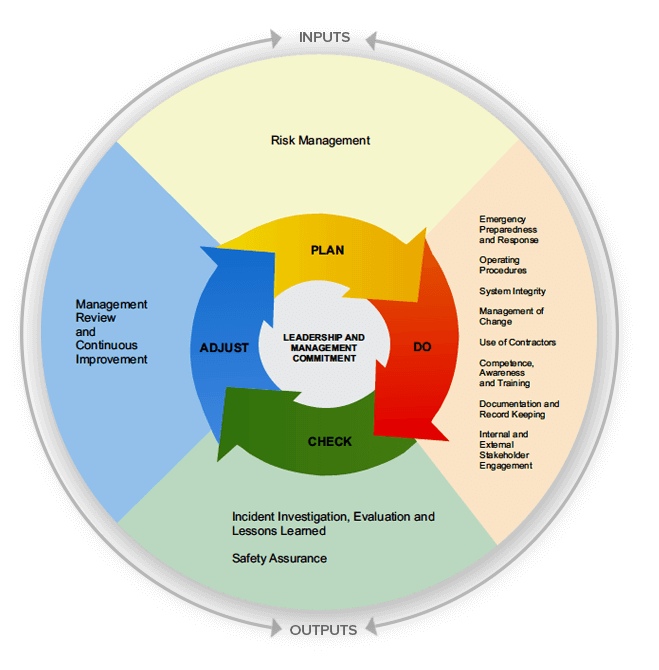MIPC's commitment to API RP-1173 - Pipeline Safety Management System (PSMS)
MIPC, LLC (MIPC) maintains a PSMS that builds a shared understanding of safety culture. MIPC’s leadership team documents MIPC’s policies, procedures, annual goals, and commitment to safety on a continual basis.
MIPC strives for continuous improvement and routinely measures effectiveness and maturity with API RP 1173, a rigorous national pipeline safety framework designed specifically for pipeline operators.
MIPC establishes annual goals and objectives for its PSMS. The objectives are measurable and consistent with MIPC and Monroe Energy’s safety policies and objectives.
MIPC leadership has created a culture that encourages openness and two-way dialogue so that we learn from each other and from industry resources, reducing the risk of incidents ever happening. MIPC routinely shares lessons learned throughout the organization through a variety of mechanisms such as quarterly safety meetings and weekly safety discussions.
MIPC also routinely focuses on programs geared towards recognizing actions taken to address PSMS-related vigilance as team members complete daily job functions.

The PSMS is comprised of ten (10) key elements that work individually and in unison to achieve the pipeline safety goals. The components and goals of each element are supported by specific processes, procedures, and programs at MIPC.
- Leadership and Management Commitment
- Stakeholder Engagement
- Risk Management
- Operational Controls
- Incident Investigation
- Safety Assurance
- Management Review and Continuous Improvement
- Emergency Preparedness and Response
- Competence and Training
- Documentation and Recordkeeping
The Plan-Do-Check-Act PDCA cycle is applied to each element of MIPC’s PSMS and the system as a whole in order to reduce risk and improve safety performance.


